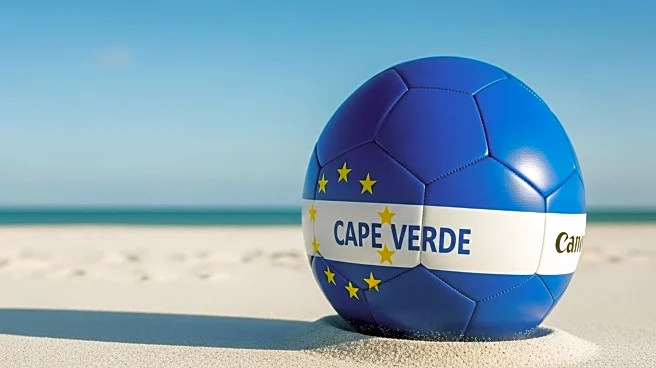What's Happening?
Cape Verde, a small African island nation, has qualified for the World Cup for the first time after defeating Eswatini 3-0. With a population of approximately 525,000, Cape Verde becomes the second smallest country to reach the men's World Cup since its inception in 1930. The nation secured its spot by finishing first in its African qualifying group, surpassing Cameroon, a prominent soccer power in Africa. Cape Verde has previously participated in the Africa Cup of Nations four times, reaching the quarterfinals in 2013 and 2023. This achievement places Cape Verde among the smallest countries to ever compete in the World Cup, alongside Iceland, Paraguay, Trinidad and Tobago, and Northern Ireland.
Why It's Important?
Cape Verde's qualification for the World Cup is a significant milestone for the nation, highlighting its growing presence in international soccer. This achievement not only boosts national pride but also enhances the country's visibility on the global stage. For the U.S., Mexico, and Canada, which are hosting the next World Cup, Cape Verde's participation adds diversity and excitement to the tournament. Smaller nations qualifying for such prestigious events can inspire other countries with limited resources to invest in sports development, potentially leading to more competitive and inclusive international competitions.
What's Next?
As Cape Verde prepares for its World Cup debut, the nation will likely focus on training and strategizing to compete against larger and more experienced teams. The upcoming tournament provides an opportunity for Cape Verde to showcase its talent and potentially advance beyond the group stage. The country's participation may also lead to increased investment in sports infrastructure and youth development programs, aiming to sustain and build upon this success in future competitions.
Beyond the Headlines
Cape Verde's World Cup qualification could have broader implications for the country's tourism and economy. Increased international attention may attract visitors and investors, boosting local businesses and creating new opportunities for economic growth. Additionally, the success of smaller nations in global sports events can challenge traditional power dynamics, encouraging a more equitable distribution of resources and support within the sports community.









